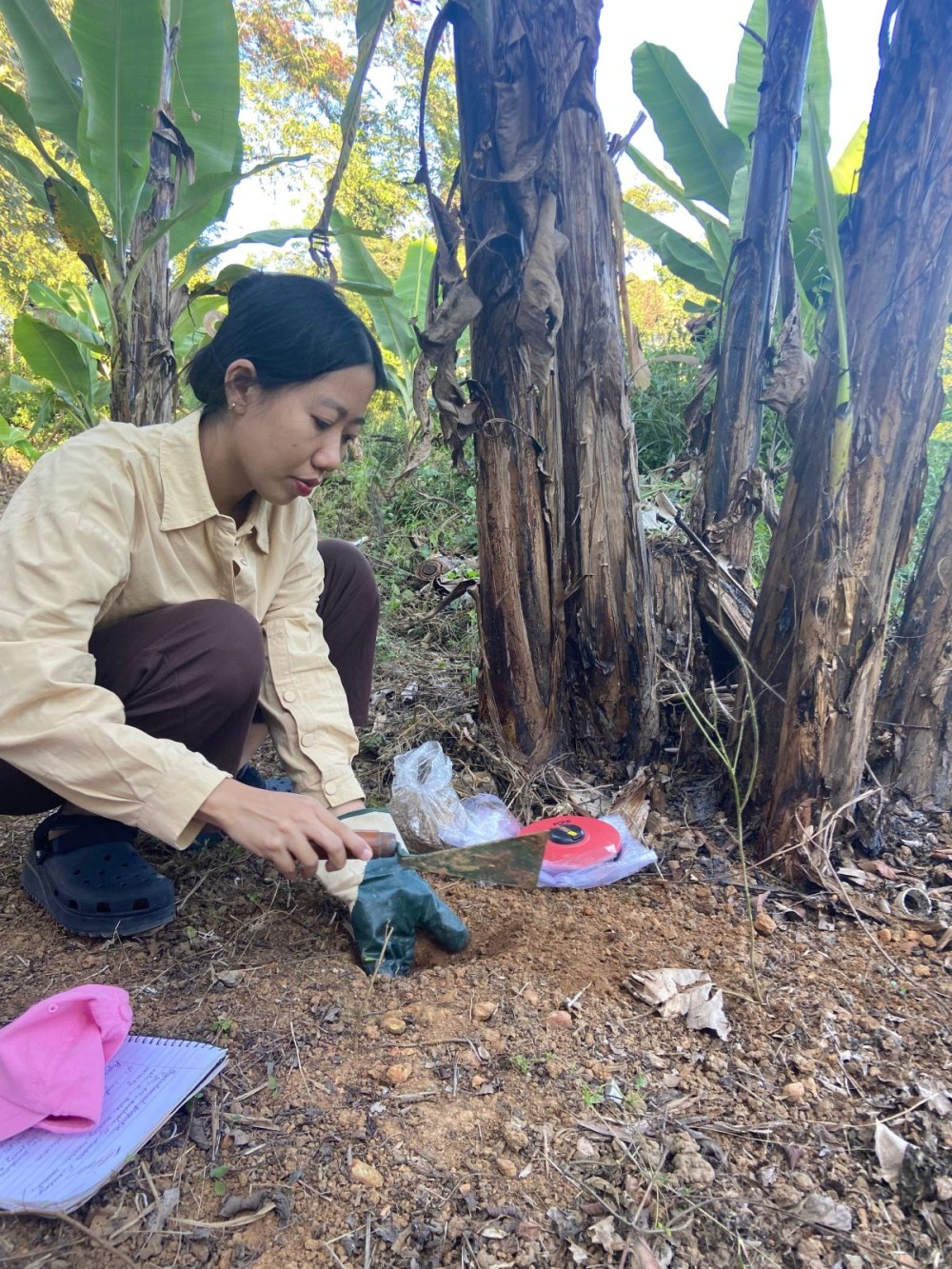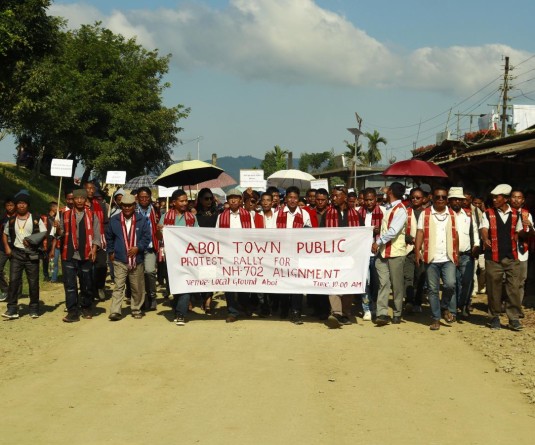Reshinaro Tzudir, PhD scholar in the Department of Soil & Water Conservation, Nagaland University collects soil samples from Dhansiripar.

LUMAMI, November 24 (MExN): A multi-institute research team led by researchers from Nagaland University (NU) has found rapid soil degradation in Nagaland’s Dhansiripar region.
The research team conducted an extensive study on how diverse land use practices are transforming soil health across six villages — Amaluma, Dhansiripar, Doyapur, Kiyeto, Melongmen and Razhaphe.
According to an NU release, the study examined how complex interactions between farming systems, agricultural expansion, urbanisation, and forest conversion affect key soil properties, including pH, bulk density, porosity, water-holding capacity, organic carbon, and nutrient levels.
The team found that prevailing practices in the region are contributing to soil degradation, declining fertility and heightened erosion risks, issues that farmers themselves raised during initial field surveys.
It also observed strongly to moderately acidic soils (pH 4.9–5.9) across the sites, wide variations in organic carbon content (0.45–3.69%) and notable differences in macronutrient availability and cation exchange capacity, highlighting the need for site-specific nutrient management.
The researchers called for urgent sustainable land management, noting declining soil stability and uneven nutrient availability, and aim to provide data-driven insights to boost crop yields, support sustainable farming, and enhance local livelihoods.
Co-author Prof Manoj Dutta of SAS, NU, noted the study examines diverse land uses -paddy fields, cultivated plots, orchards, and forests, enabling a nuanced understanding pf how management practices affect soil conditions.
SAS’ Prof Tanmoy Karak said the findings reinforce the need for land-use-specific conservation strategies and sustainable farming interventions.
Reshinaro Tzudir, PhD Scholar at SAS, said the findings reveal soil variability and erosion risks, raising urgent concerns for long-term ecosystem sustainability and the need for innovative amd sustainable management strategies.
The rigorous methodological approach enhances the reliability of the results and strengthens conclusions on land-use–soil interactions, added Dr Ranjit Kumar Paul from the ICAR–Indian Agricultural Statistics Research Institute in New Delhi (ICAR-IASRI).
The team noted that the study uniquely offers a holistic view of soil dynamics in a largely unassessed North-East region through comparative analysis and statistical modelling.
Looking ahead, the researchers plan to monitor soil changes over time, implement practices like agroforestry and crop rotation, and collaborate with local communities to incorporate traditional knowledge.
The researchers further aim to engage policymakers for evidence-based land-use planning and explore soil biological properties for a fuller understanding of soil health, it added.
NU Vice Chancellor Prof Jagadish K Patnaik stated that the findings call for the urgent adoption of sustainable land-management practices to prevent further deterioration and safeguard agricultural productivity and environmental health.
The findings were published in Environmental Monitoring and Assessment, an international peer-reviewed journal by Springer.
Other researchers from SAS-NU, Medziphema included Dr Alongba Jamir, Sorenthung Patton, Dr Rizongba Kichu, Haiguipeung Hieme, Angela Pidenro, Dr Sewak Ram, Debobratha Mondal, Prof CS Maiti, Dr Animesh Sarkar and Dr Pankaj Neog.
Collaborators included Dr Paul and Dr Md Yeasin from ICAR-IASRI; Dr Saumik Panja from the University of California San Francisco; Dr Jiban Saikia from Dibrugarh University; Dr Harisadhan Malakar from the Tocklai Tea Research Institute, Jorhat; and Dr Sagarika Das from Diphu Medical College and Hospital, Assam.





